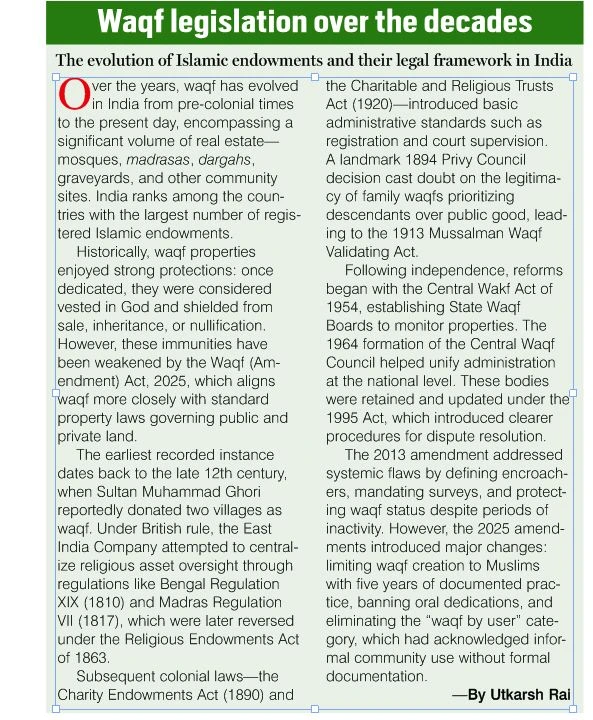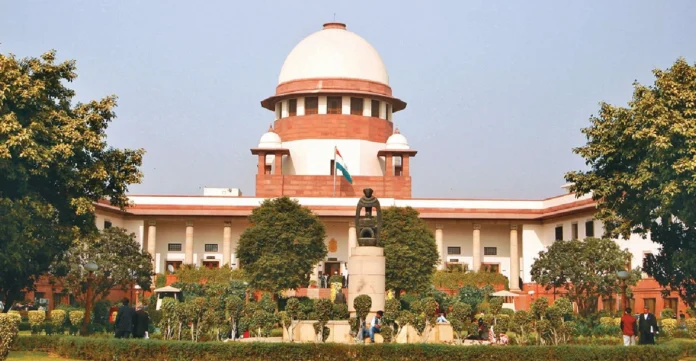By Sanjay Raman Sinha and Utkarsh Rai
As a barrage of acerbic commentary comes from within the BJP fold, the judiciary is increasingly finding itself at the centre of a political and ideological offensive.
The latest volley of criticism began online, with social media accounts purportedly aligned with the BJP launching a scathing attack on the Supreme Court following its remarks on the amended Waqf Act. These accounts unleashed a torrent of derogatory language and trending hashtags, sparking concerns about a growing erosion of respect for constitutional institutions and a dangerous turn toward further polarization.
What began digitally soon spilled into the public arena. BJP MPs Nishikant Dubey and Dinesh Sharma publicly criticized the apex court, escalating the narrative and fuelling a broader debate over the limits of free speech and the accountability of lawmakers.
In the first salvo, Vice-President Jagdeep Dhankhar expressed discontent over the Supreme Court’s decision to set a timeframe for the president and governors to assent to bills. Dhankhar warned that the situation must not devolve to the point where courts begin directing the president of India—an assertion that laid bare his unease with what he perceives as judicial overreach.
Dhankhar centred his concerns on Article 142 of the Constitution, which gives the Supreme Court special powers to pass any order necessary to ensure complete justice. He likened these powers to a “24×7 nuclear missile” that could be deployed against the core of democratic governance. He argued that India’s constitutional architects never intended for judges to legislate, execute, and operate as a super-legislature. His critique underscores a growing debate over the scope of judicial authority and the fragile balance between the three branches of the government.
Then came a political missile from Dubey, triggering an all-out storm. Dubey launched his attack after the Supreme Court’s April 8 order directing the president to act on bills within three months. He went so far as to accuse Chief Justice of India Sanjiv Khanna of being responsible for “civil wars” in the country, claiming the Court was exceeding its constitutional boundaries.

The mention of “civil wars” was in reference to violence in Murshidabad, linked to the controversial Waqf (Amendment) Bill, 2025, which Dubey alleged had inflamed tensions between communities.
His comments were widely interpreted as contemptuous, prompting a petition to the Supreme Court to initiate contempt proceedings. A bench comprising Justices BR Gavai and AJ Masih acknowledged the gravity of the situation and directed that the petition be listed for hearing next week. The case is now poised to test the intersection between parliamentary privilege and judicial dignity.
The petitioner, a lawyer, also requested the removal of videos featuring Dubey’s remarks from social media platforms. Under the Contempt of Courts Act, 1971, the attorney general’s consent is required to initiate proceedings, which was duly sought.
While Article 105 of the Constitution grants members of parliament certain privileges—including freedom of speech and immunity for statements made in parliament—these protections do not extend to statements made outside the House. If such statements scandalize the judiciary, the Court is empowered to take direct action under the Contempt of Courts Act.
Since Dubey’s remarks were made publicly and outside parliament, they fall within the purview of contempt. Article 105 does not require the Speaker’s permission for statements made beyond the parliamentary floor, giving the judiciary jurisdiction to act independently.
The Supreme Court has observed that if a statement made on a public platform undermines its authority or dignity, it can serve notice—though none has been issued yet. The eventual outcome will have significant implications for the balance between democratic freedoms and judicial restraint.
In an attempt at damage control, BJP President JP Nadda publicly distanced the party from Dubey’s comments, posting on X: “BJP neither agrees with nor supports such statements. We completely reject these remarks. The party has always respected the judiciary.”
Dubey’s remarks followed the Supreme Court’s ruling that governors do not possess veto power over legislation, and that the president must act on bills forwarded by state governors within three months. The decision came in the wake of Tamil Nadu’s governor withholding assent to ten bills—an act the court deemed unconstitutional. The ruling effectively clarified the constitutional role of the president in legislative processes and affirmed the limits of gubernatorial discretion.
What began as a legal interpretation has now become a flashpoint in the larger political discourse—fuelling a fierce national debate over institutional boundaries, the abuse of free speech, and the sanctity of the judiciary.


